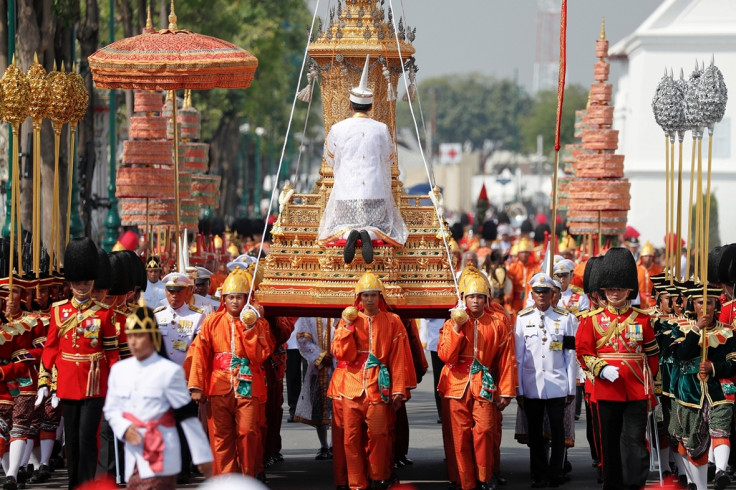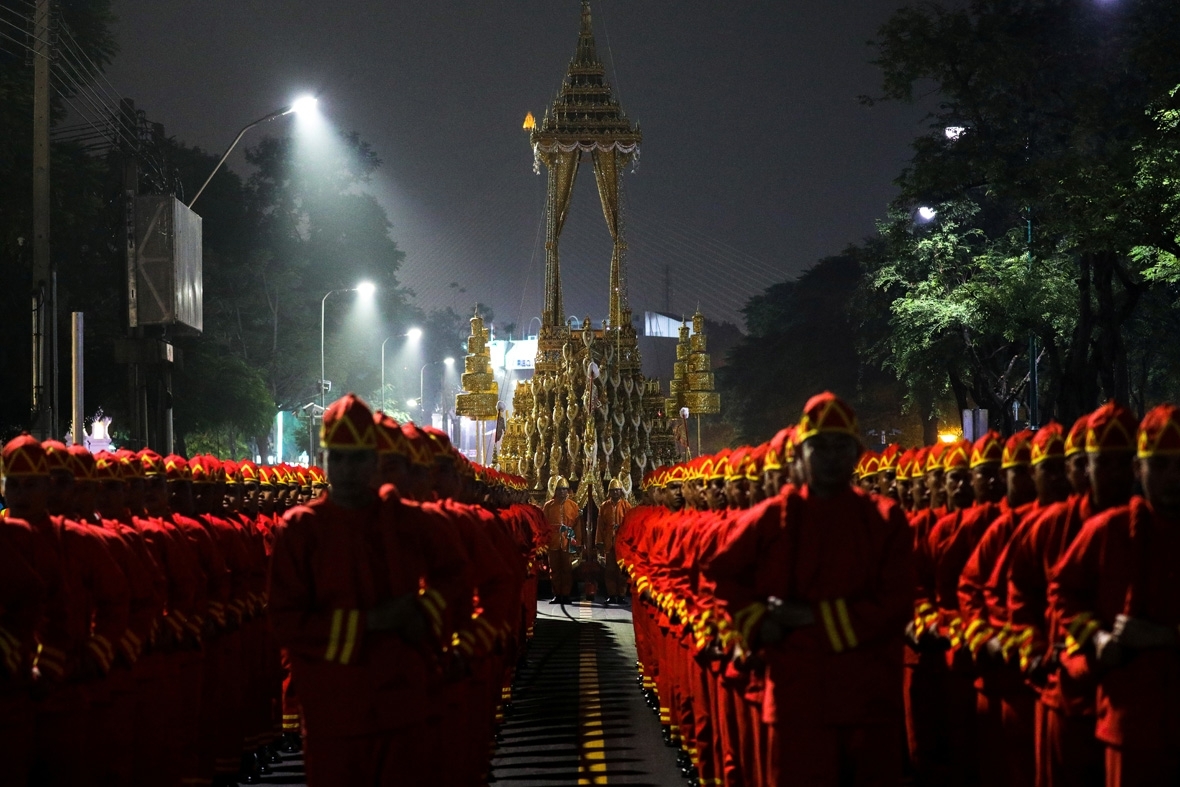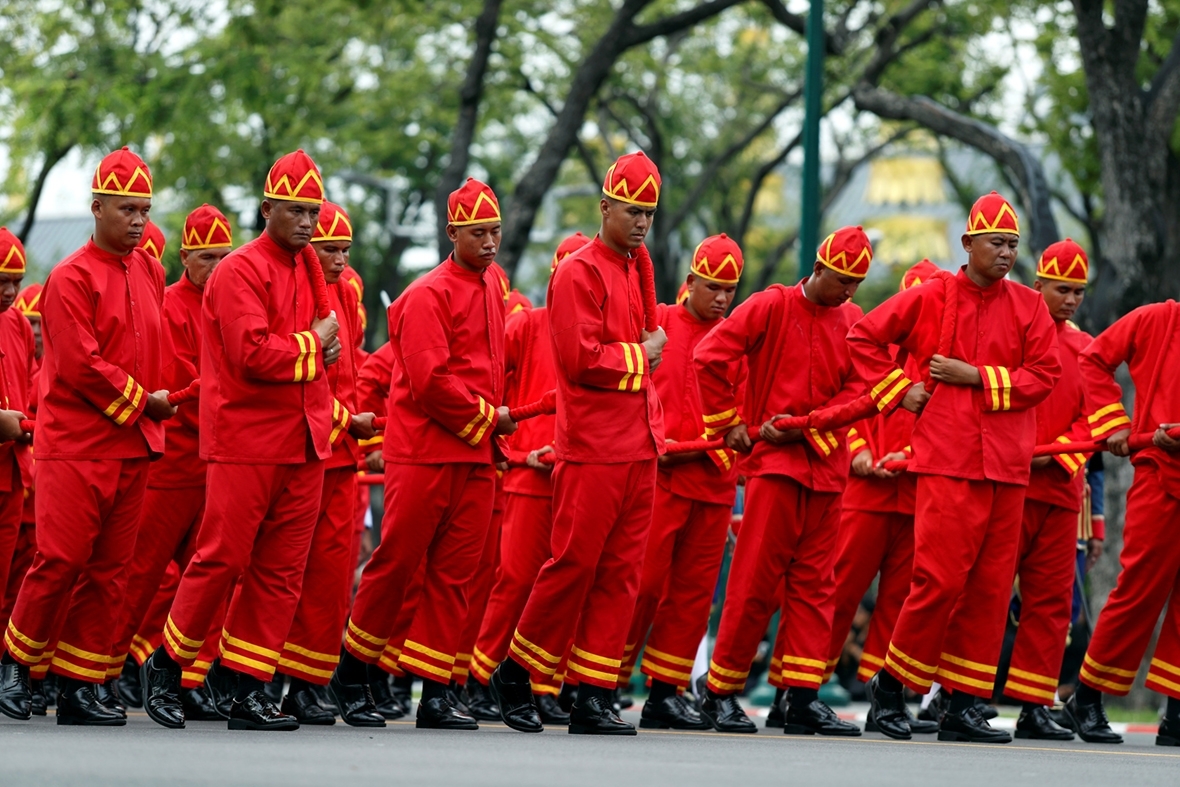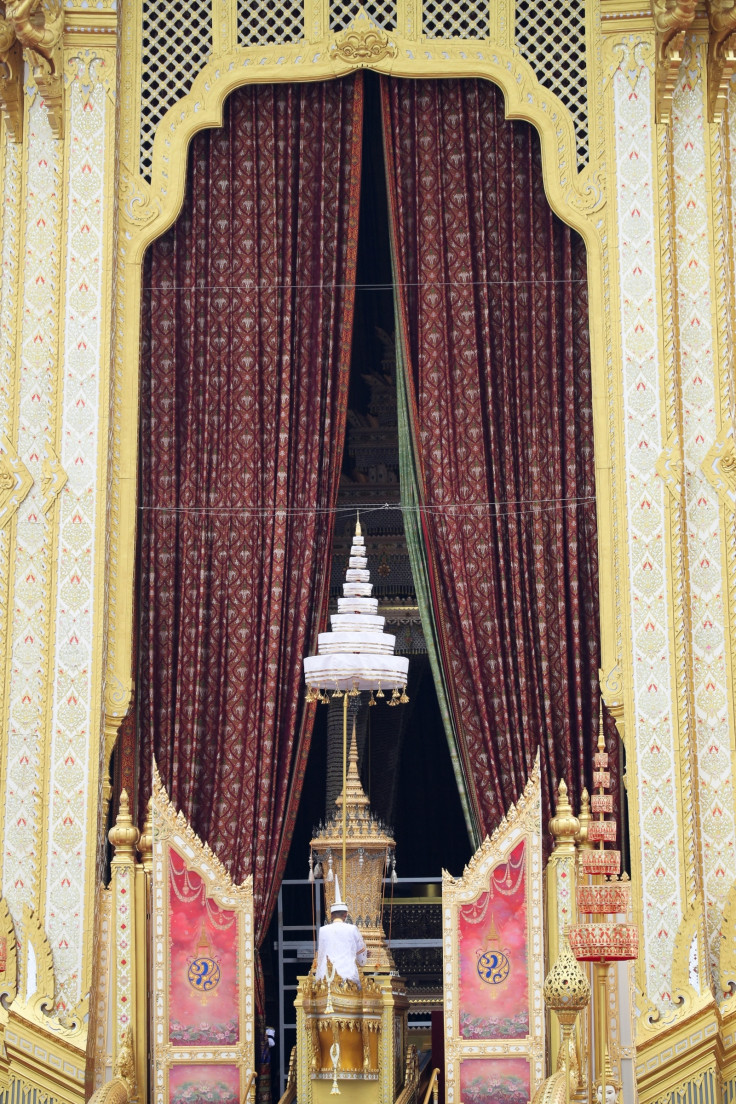In pictures: Lavish funeral ceremony for Thailand's King Bhumibol Adulyadej, also known as Rama IX
Nearly £70 million ($90m) has been set aside for the funeral, the likes of which has never been seen in Thailand.
Thailand is staging a lavish and elaborate ceremony for the funeral and cremation of the revered King Bhumibol Adulyadej, also known as Rama IX.

Three processions involving the royal family, thousands of troops, a golden palanquin, a chariot and a royal gun carriage carried an urn representing the king's remains from the Dusit Maha Prasad Throne Hall in the Grand Palace to the 50-metre (165-feet) high gilded Royal Crematorium erected in a square nearby.
As the chariot, pulled by hundreds of men in traditional red uniforms, passed tens of thousands of black-clad mourners lining the parade route, they prostrated themselves, pressing their folded hands and head on the ground in a show of reverence for the late monarch.















The Great Victory Chariot, built in 1795 and made of gilded and lacquered carved wood, has been used to carry the urns of royal family members dating to the start of the Chakri dynasty.
Although deceased Thai royals have traditionally been kept upright in urns during official mourning, Bhumibol – who spent much of his early life in the West – opted to be put in a coffin, with the royal urn placed next to it for devotional purposes. The late king's body, which had been lying in state at the palace since his death, was moved to the cremation area on Wednesday night.
The urn, placed under a nine-tiered white umbrella and accompanied by a palace official, was then hoisted into the main chamber of the golden-spired crematorium as monks chanted, traditional instruments wailed and artillery fired in the distance. New King Maha Vajiralongkorn then climbed the red-carpeted steps to light candles and incense in honour of his father.



Thick curtains were then drawn across the crematorium so the monarch's remains could be prepared for burning with rare sandalwood.

Bhumibol will be cremated on Thursday evening (26 October) within the special crematorium which took a year to build and which represents mystical Mount Meru, where Buddhist and Hindu gods are believed to dwell. You can watch the funeral via the Thai PBS live stream below:
Nearly £70 million ($90m) has been set aside for the funeral, the likes of which has never been seen in Thailand, officials have said. King Bhumibol was portrayed as a frugal man despite being one of the world's wealthiest monarchs. The funeral is by design an intensely somber event, but also rich in history and cultural and spiritual tradition.
The ceremony was watched in person by tens of thousands of mourners dressed in black. Officials in charge of the ceremony said around 110,000 members of the public had gathered near the cremation area, with another 200,000 in adjacent areas in the city's historic centre. Many clutched pictures of the late king and many chose to prostrate themselves as the royal urn passed by. The practice was abolished in 1873 by King Chulalongkorn, also known as Rama V.







Mourners have braved tropical heat and torrential monsoon rains to secure street-side vantage points to witness the funeral. Thousands of police and volunteers are on hand to ensure order and entry into the royal quarter, which has been tightly controlled to eliminate the faint possibility of protest against the monarchy or military government.
King Bhumibol, who died on 13 October 2016 aged 88, reigned over the country for 70 years. He was highly revered for his dedication to the country's development, demonstrated over many decades by his visits to even the most remote areas of the country, where he was able to hear directly from citizens about their concerns. He was widely seen as a father figure and regarded as the nation's moral compass during decades of political turbulence including several coups, bloody street protests and a region-wide 1997/98 financial crisis.
He was succeeded in December by his only son, King Maha Vajiralongkorn, known as Rama X, who has since overseen a shake-up at the palace to give himself greater authority. He does not yet command the same level of respect as his father and presides over a country that has been sharply polarised by political strife over the past decade and has been under military rule since 2014.







